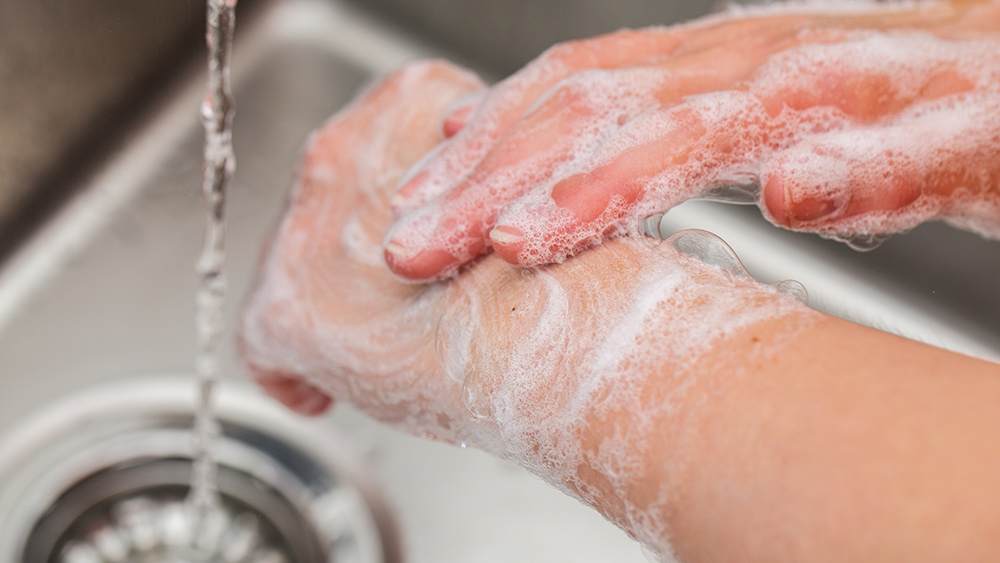
Advertisement
Besides eating healthy and avoiding crowds, here are some ways you can lessen the risk of contracting the new coronavirus disease:
Clean and disinfect surfaces
According to the Centers for Disease Control and Prevention (CDC), a person can contract the new coronavirus disease by touching any surface contaminated by the virus and then touching the mouth, nose or eyes. The virus itself may be able to survive for up to nine days on many surfaces, including plastic and metal.
The most important surfaces to clean and disinfect regularly are those that are often touched, such as doorknobs, light switches, keyboards, remote controls, countertops, knife blocks, desks, sponges, ice cube trays and faucet handles. Doing so may reduce the likelihood of the virus transferring from the surface onto your hands. If your household includes a child or children, you may also need to clean and disinfect toys.
Even if neither you nor your family are showing symptoms of the new coronavirus disease, regularly cleaning and disinfecting surfaces can get rid of similar disease-causing pathogens, such as E. coli, Salmonella, Norovirus and hepatitis A virus.
Dust or vacuum regularly
Disease-causing pathogens, such as germs and viruses, can cause respiratory conditions. To prevent this, dust or vacuum around the house regularly to get rid of particles, dander and other allergens. Common surfaces to clean include curtains, kitchen appliances, furniture, closets, drawers and tables.
Remove your shoes before entering the house
The floor is arguably the dirtiest surface of any room. It receives a high amount of traffic on a daily basis and catches everything, from dust to bacteria. Like most surfaces, the floor is easy to clean and disinfect. However, it can also gather dirt quickly. To avoid this, make it a habit to remove your shoes before entering the house.
A study by Charles Gerba, a microbiologist and a professor at the University of Arizona, showed that an average of 421,000 different bacteria thrived on shoes. Among these bacteria are E. coli and coliforms, which are indicators of food and water safety. The study also revealed that the transfer of bacteria from shoes to floors ranged from 90 to 99 percent.
According to Kelly Reynolds, an associate professor at the University of Arizona, “We walk through things like bird droppings, dog waste and germs on public restroom floors, all of which are sources for E. coli.”
Therefore, it is important to keep outdoor shoes outside the house and to regularly disinfect floors.
Clean and disinfect your cellphone
Cellphones are hot spots for germs due to how frequently they are handled. Given the current climate, a cellphone may pose a health risk to an individual since the novel coronavirus can also contaminate the surface of gadgets. Therefore, clean and disinfect your cellphone as you would dirty surfaces inside your home.
Wash your hands frequently
According to the World Health Organization (WHO), properly and regularly washing your hands can protect you against infection. It is also a good idea to leave sanitizers or sanitizing wipes around common living areas. (Related: 5 ways to wash your hands when running water is unavailable.)
Set a good example
Setting a good example for people who may not be aware of proper hygiene practices, such as children or older family members, may encourage them to follow suit. Make it a habit to wash your hands frequently and observe proper sneezing and coughing etiquette.
Self-isolate
If you experience symptoms of a viral infection, such as chills, excess mucus, cough or fatigue, limit physical contact with friends and family. Avoid entertaining visitors and face-to-face contact. Do not share dishes, cups, utensils, towels and the like with other members of the household.
Similarly, if someone you live with is sick, encourage them to follow these measures to avoid transmission of the infection.
The new coronavirus disease continues to spread worldwide. However, individuals may lessen the risk of transmission by observing proper hygiene practices and disinfecting surfaces regularly.
Sources include:
Advertisement
Advertisements
















